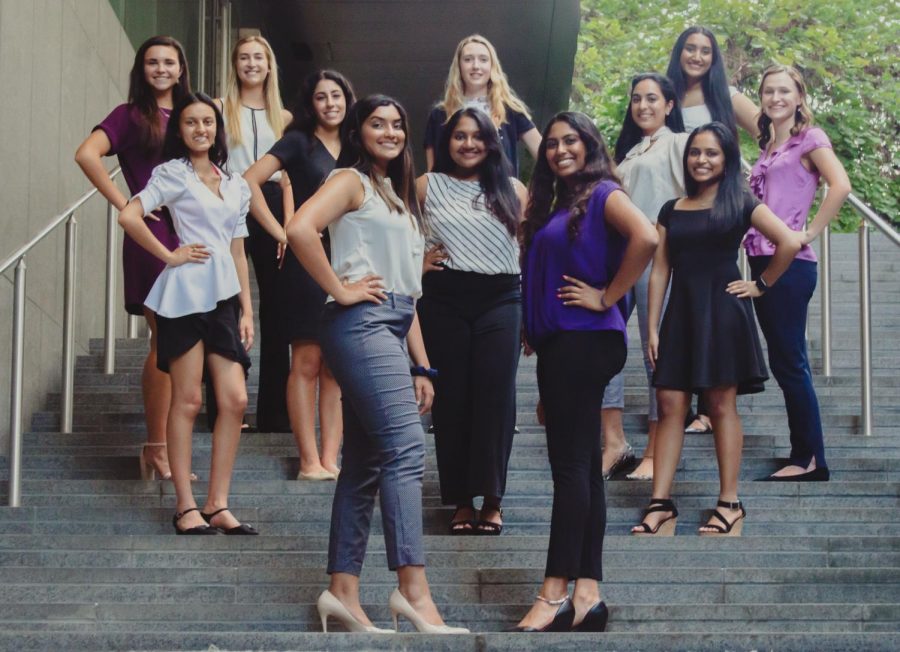Presidents of female professional organizations discuss confidence, growth
December 1, 2021
Swallowing a lump in her throat, Gabrielle Edwards looked at the 150 pairs of eyes staring back at her on Zoom. Each Zoom box contained a member of her organization she wanted to impress.
As Edwards presented the meeting agenda for UT’s Women in Medicine club, she felt the pressure of leadership on a new level.
“I was interested in Women in Medicine because there’s an aspect of feminism to it,” human biology senior Edwards said. “So, being the head of that, I have a lot of responsibility. All of a sudden I’m being perceived in a way that I’m not used to.”
Like Edwards, many female students at UT seek clubs dedicated to women pursuing professional fields like medicine, international relations or business. Through these organizations and their sense of community, many women feel motivated in their respective industries.
About 100 of Women in Medicine’s 150 members joined just this year. Even the existing members struggle to remember the structure of the club before the pandemic. When they shifted meetings online, they changed policies on attendance and dues.
Now, they work to recreate the pre-pandemic structure as they transition back to in person. Edwards said she must offer guest speaker events and bonding activities — often about women in both medical and personal spheres — in a hybrid format.
“Representation in career spaces and anywhere (is) super important,” Edwards said. “If you can see somebody that looks like you doing what you want to do in a space that is traditionally not built for you, whether that be people of color, queer students, (or) women, it makes you believe that you can do that too.”
Creating a space for women to discuss career goals and achievements without feeling interrupted, ignored or disrespected, Mahina Adams serves as president of the Women in Foreign Affairs club. Since joining the group as a freshman, Adams said she grew from an audience member at lectures to the person responsible for reaching out to speakers and coordinating those events.
“I feel a lot more comfortable speaking with other women (than other men) — especially women in positions of power,” Adams said. “It adds vulnerability.”
At the start of her college journey, Sonya Bhakthavachalam, said she felt intimidated by the many options in the business field and her older brother’s success in the industry. Her freshman year, Bhakthavachalam found her niche at the Women in Business Association.
“When I first came to college, (it was) kind of scary,” Bhakthavachalam said. “It seems like it’s always a man’s world in business … Imposter syndrome hit really hard for me.”
This year, Bhakthavachalam became president of Women In Business. Freshman year, Bhakthavachalam said she lacked the self-assurance to assume any leadership role, let alone to call herself a “woman in business.”
“Now, I definitely have that confidence,” Bhakthavachalam said. “I’ve handled a lot of things; I feel like I can get through anything.”



